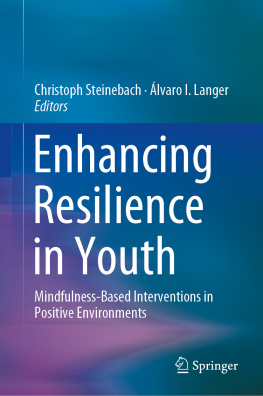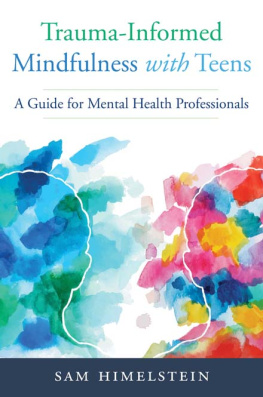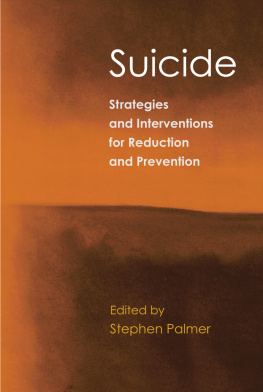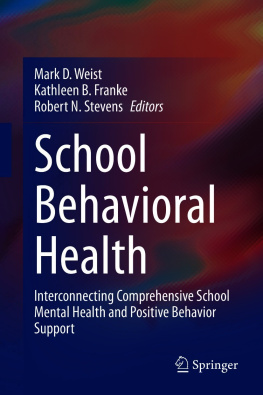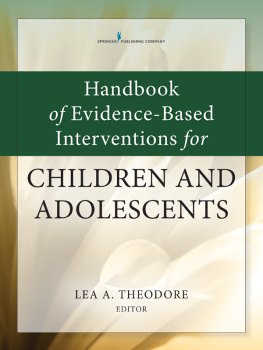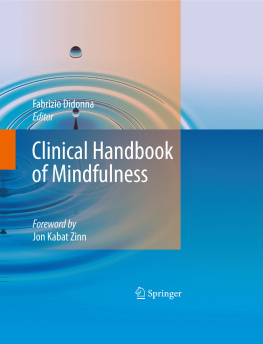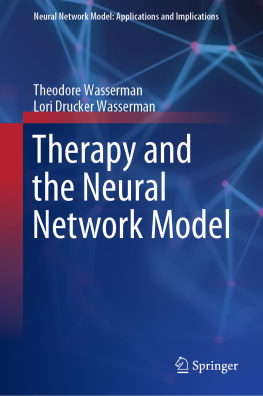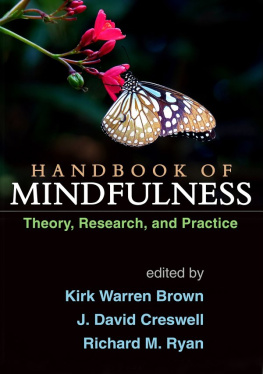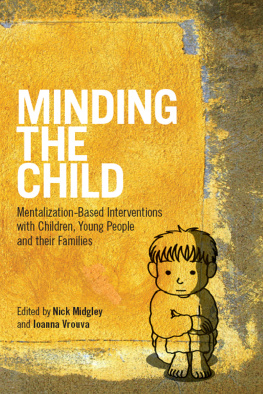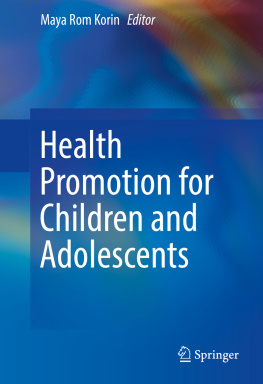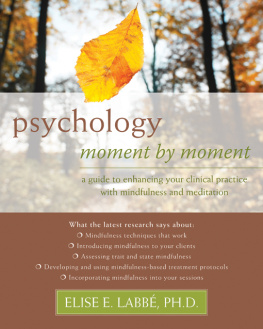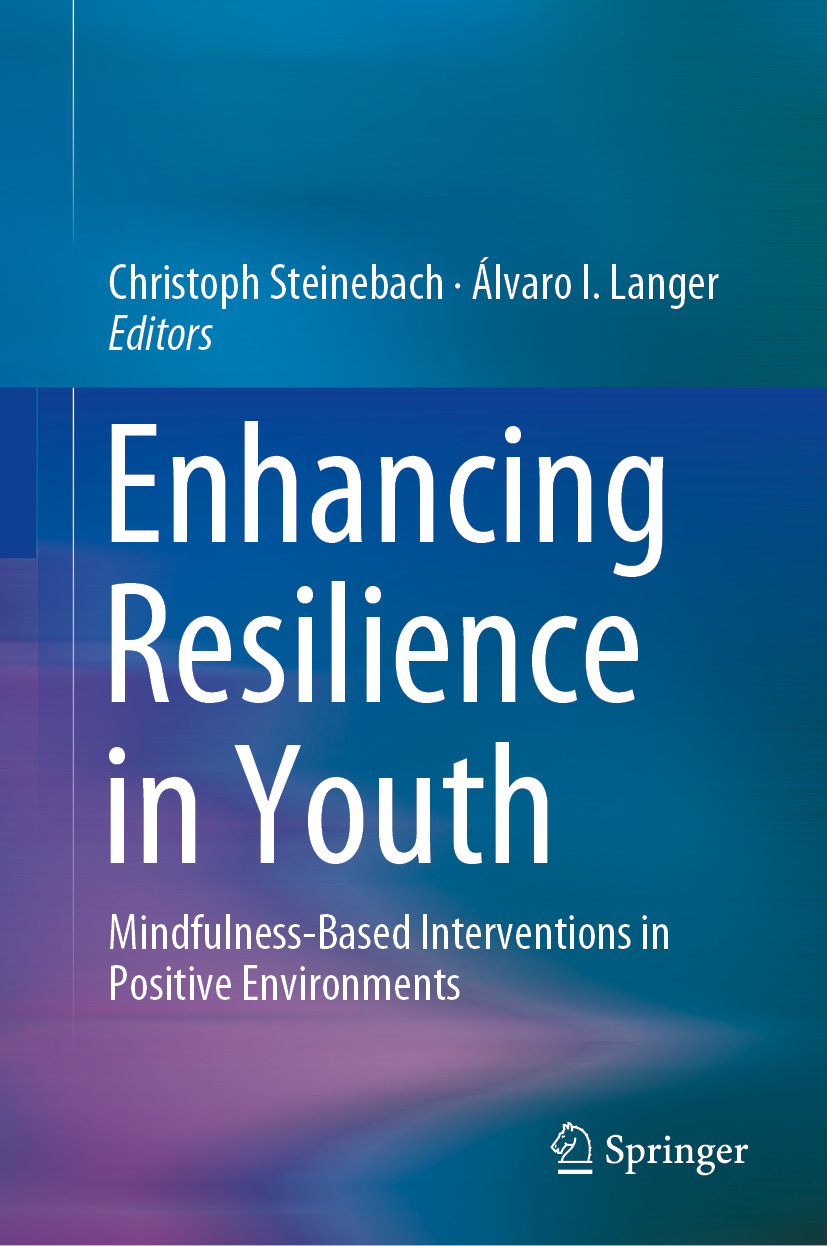Editors
Christoph Steinebach
School of Applied Psychology, ZHAW Zrich University of Applied Sciences, Zrich, Switzerland
lvaro I. Langer
Institute of Psychological Studies, Universidad Austral de Chile, Valdivia, Chile
ISBN 978-3-030-25512-1 e-ISBN 978-3-030-25513-8
https://doi.org/10.1007/978-3-030-25513-8
Springer Nature Switzerland AG 2019
This work is subject to copyright. All rights are reserved by the Publisher, whether the whole or part of the material is concerned, specifically the rights of translation, reprinting, reuse of illustrations, recitation, broadcasting, reproduction on microfilms or in any other physical way, and transmission or information storage and retrieval, electronic adaptation, computer software, or by similar or dissimilar methodology now known or hereafter developed.
The use of general descriptive names, registered names, trademarks, service marks, etc. in this publication does not imply, even in the absence of a specific statement, that such names are exempt from the relevant protective laws and regulations and therefore free for general use.
The publisher, the authors and the editors are safe to assume that the advice and information in this book are believed to be true and accurate at the date of publication. Neither the publisher nor the authors or the editors give a warranty, expressed or implied, with respect to the material contained herein or for any errors or omissions that may have been made. The publisher remains neutral with regard to jurisdictional claims in published maps and institutional affiliations.
This Springer imprint is published by the registered company Springer Nature Switzerland AG
The registered company address is: Gewerbestrasse 11, 6330 Cham, Switzerland
Preface
Education, prevention, and therapeutic services aim to change individual behaviors and produce lasting changes in problematic emotions, cognitions, and social factors. It is becoming increasingly accepted that the consideration of individual needs, strengths, and resources must reorient the deficit-focused approach of interventions toward an approach that takes individual needs, strengths, and resources into account alongside any deficits. Improving mental health in children and adolescents is an urgent necessity which should be handled in an intersectoral and interdisciplinary way. Schools as institutions play a fundamental role in achieving this task. The educational system faces tremendous challenges linked to the need to develop not solely specific academic skills (e.g., language, maths), but also personal skills (i.e., socio-emotional and behavioral) which help adolescents to have a healthy relationship with themselves and others (including nature). This involves changes at several levels which should consequently be addressed via multilevel strategies. Otherwise, school-based interventions may fail to achieve their goal to deliver mental health promotion in a sustainable manner. Research on positive attitudes and emotions suggests that mindfulness-based interventions enhance positive qualities such as empathy and well-being. In addition, evaluations of interventions targeting prosocial behavior show sustainable effects on self-efficacy and resilience.
In this book, we combine a range of research perspectives from several countries by connecting mindfulness to prosocial behavior and to positive social and physical environments in order to enhance resilience. Theoretical aspects and recommendations for practice aimed at promoting mental health and healthy lifestyles in adolescents, such as school-based interventions, are presented. We would like to gain a broad understanding of the levels and variables which require attention in order to enhance resilience in adolescents. This includes shedding light on the role of biopsychosocial conditions as breeding grounds which may allow school-based interventions to flourish and be sustainable within the educational system.
The primary objective of this book is to describe what is needed to plan, develop, and implement peer-supported mindfulness-based interventions to prevent mental disorders in children and adolescents. Given the tremendous challenges posed by increasing rates of mental disorders and their associated costs and psychosocial problems for society, it is crucial to investigate possible early intervention programs aimed at children and adolescents that may help prevent the development of mental disorders in the future. We focus on interventions designed to maintain psychosocial health and prevent emotional and behavioral problems in children and adolescents around the globe. Our intercultural perspective will allow for the discussion of complex topics such as the influence of cultural differences and the generalizability of program effects. This transfer of knowledge and experience will facilitate the successful cross-cultural implementation of future interventions.
In sum, the objectives of this book are to (1) present theories and research on psychosocial mindfulness-based and peer-oriented prevention and intervention programs; (2) describe biological (e.g., epigenetics), individual (e.g., generosity), social (e.g., peer support), and intercultural (e.g., values, differences in educational systems) factors associated with program outcomes and feasibility; and (3) use an intercultural perspective to make recommendations for the implementation of interventions aimed at children and adolescents, seeking to reduce the existing psychosocial problems and the risks of developing other such problems or depression.
The articles will be grouped into four major parts. The first part, with pieces by Catherine Andreu, Carlos Garca-Rubio, lvaro I. Langer, Christoph Steinebach, Tri Thi Minh Thuy, and Leandro Torres-Daz, provides an introduction to peer support and mindfulness. Both articles outline the ways in which interventions focusing on mindfulness, compassion, and social support in adolescence might be connected from a multilevel and culturally sensitive perspective. In doing, both articles give valuable insights into theoretical and conceptual aspects of mindfulness-based and peer-related interventions in adolescents. The second part provides a closer look at the basics of resilience and mindfulness. The articles follow the biopsychosocial model of development and therefore focus on different intrapersonal and interpersonal aspects: Perla Kalimann on the epigenetics of well-being; Christoph Steinebach, Marcel Schaer, and Imke Knafla on generosity, peer support, and resilience; Sabine Pirchio and Yelina Passiatore on the school environment; Volker Schulte and Larisa Zotova on the organizational aspects of resilience in the workplace; and finally, Giuseppe Carrus and Angelo Panno on sustainability and resilience in the community. In the third part, we examine the question of how mindfulness and peer support are combined in interventions aimed at promoting resilience. With a view to the multitude of serious behavioral problems that characterize school age, Matas Irarrzaval gives several recommendations for psychological interventions in educational contexts. As Catherine Andreu and Carlos Garca-Rubio point out in their chapter, it is important to enhance competencies to regulate ones emotions via an exploration of change mechanisms linked to mindfulness interventions in schools. In this regard, Marcel Schaer and Imke Knafla discuss how counseling can meet students basic needs by creating positive relations. Sebastin Medeiros and Simn Guendelman discuss in which ways a socio-affective, developmentally informed perspective for contemplative practices in adolescence can promote resilient communities. Vanessa Nowak and Felix Fuders discuss the role that education should play in the development of a resilient society and advocate for a paradigm shift in economics. How might mindfulness-based and peer-oriented theory and practice evolve in the future? The fourth part discusses promising approaches for constructive development in mental health promotion: Roberto Arstegui and Claudio Araya-Vliz focus on relational mindfulness; Nathania Klauser and Philipp Steinebach on current developments in the psychotherapy of adolescence; and Adolfo J. Cangas, Mara Jos Fnez, Consuelo Morn, Noelia Navarro, and Petra Moldes on new technologies and well-being. Mariane Krause examines the significance of social transformations in mental health. And last but not least, Felix Fuders and Vanessa Nowak discuss how an economy based on love can promote allocative efficiency and happiness.

